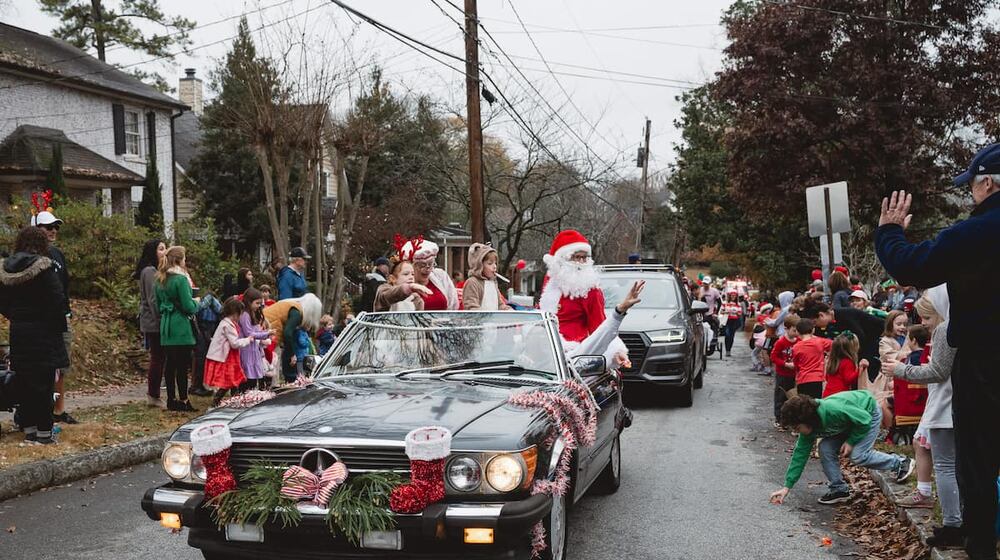Even a lesser entry in playwright August Wilson’s monumental Pittsburgh Cycle — 10 dramas chronicling the black experience in America, one set during each decade of the 20th century — is well worthy of attention.
"King Hedley II," the eighth of them to be written (in 1999) and the ninth in terms of the chronological order of their settings (1985), doesn't stand quite as tall or towering alongside most of the other companion pieces in the acclaimed anthology (including "The Piano Lesson," "Fences," "Ma Rainey's Black Bottom" and "Joe Turner's Come and Gone"). Still, standing apart on its own merits, it's a commanding piece of work unto itself.
RELATED | 'Rent' and its resonating messages return to the Fox Theatre on 20th anniversary tour
Wilson often weaves recurring characters and events throughout these plays: The life and times of the mythical Aunt Ester are referenced in several of them, for instance, and she also becomes the focal point of one installment (“Gem of the Ocean”). While it isn’t a prerequisite, exactly, the more you’ve seen of the series as a whole, the more likely you’ll be to truly and fully appreciate such intricacies in Wilson’s overall technique.
More blatantly than in any other case, perhaps, "King Hedley II" draws specific connections to characters and events from the earlier "Seven Guitars" (the 1940s segment). Here, in associate artistic director Jamil Jude's occasionally rather static staging for True Colors Theatre, audience members who may not realize that correlation could tire or lose interest during lengthy stretches detailing some of those back stories over the course of this show's three hours.
In a handful of incisive performances, however, True Colors' "Hedley" rules. Jude's ensemble of six actors is bolstered by the galvanizing turn of Thomas Neal Antwon Ghant (late of the Alliance's remounted "Native Guard") in the title role, an angry ex-con, who professes knowing right from wrong, even as he contemplates drastic measures in pursuit of his admirable dreams, who weighs the difference between "getting killed for something" and "for nothing," torn between making peace with God — and with himself. Ghant's devastating delivery of a speech that closes the first act might mark a pinnacle of his prolific career.
Equally commendable in supporting roles: Tonia Jackson as the feisty Ruby, a surrogate mother figure to Hedley; Tiffany Denise Hobbs as Tonya, his world-weary wife; an engaging Eugene H. Russell IV as Mister, his friend and partner in crime; Eddie Bradley Jr. as the seemingly off-center (but possibly prophetic) Stool Pigeon, who lives next door; and especially the excellent E. Roger Mitchell as Elmore, Ruby’s long-lost former flame — and a catalyst of additional conflict for Hedley himself. Their mastery of Wilson’s demanding verbosity and vernacular is uniformly skillful. Talky? Yes. But brilliantly articulated? That, too.
(And insert here more obligatory praise for those scenic designers extraordinaire, Moriah and Isabel Curley-Clay, and their highly evocative inner-city set.)
Regrettably, things quickly, wildly and messily unravel in the play’s climactic moments, with a sudden, slightly incredulous shift of temperament and tone. To borrow a description of Elmore, the involved antagonist, call “King Hedley II” mostly a matter of “talking sugar,” if ultimately prone to “giving salt.”
THEATER REVIEW
“King Hedley II”
Through March 11. 7:30 p.m. Wednesdays-Saturdays (excluding March 2); 2:30 p.m. Saturdays-Sundays; 10 a.m. Friday (March 2 only). $23-$44. Southwest Arts Center, 915 New Hope Road, Atlanta. 1-877-725-8849, www.truecolorstheatre.org.
Bottom line: An imperious drama.
IN OTHER NEWS:






